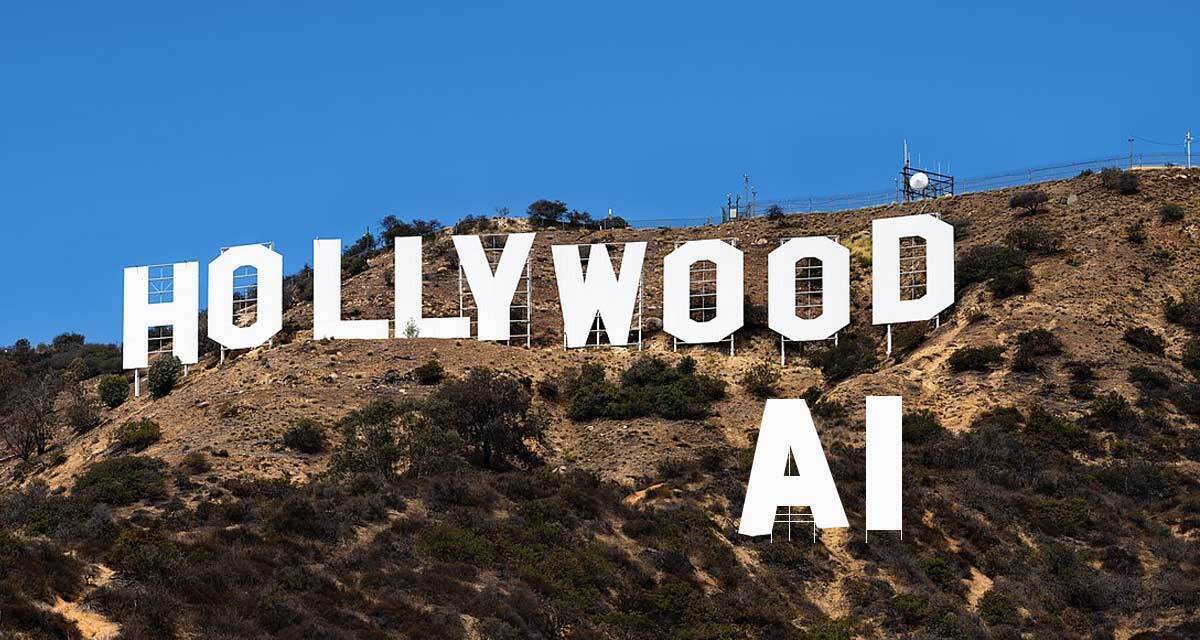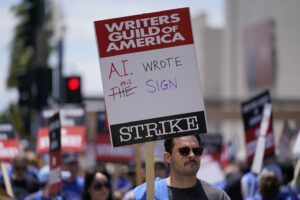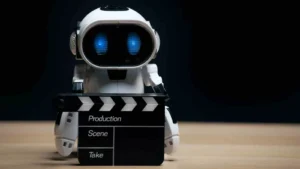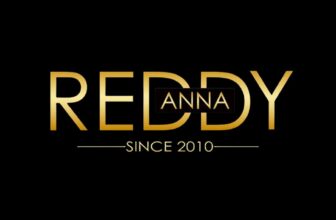
For an extended period, the connection between Hollywood and Artificial Intelligence (AI) remained largely within the confines of speculative fiction. Movies such as The Matrix and Ex Machina delved into the possibilities of AI, frequently portraying it through a dystopian lens. However, in a remarkable turn of events, AI has evolved from a theoretical notion to an essential instrument within the film industry. The pertinent inquiry now is not whether AI will impact Hollywood, but rather to what extent. As AI technology continues to advance at a rapid pace, the entertainment sector is confronted with a new reality that creators must acknowledge. AI has become an integral part of Hollywood’s production methodologies, presenting both innovative opportunities and considerable challenges. This discussion will examine how AI is transforming the film and television landscape and what implications this holds for the future of creative professionals in Hollywood.

FILE – Members of the The Writers Guild of America picket outside Fox Studios on Tuesday, May 2, 2023, in Los Angeles. Getting control of the use of artificial intelligence is a central issue in the current strikes of Hollywood’s actors and writers, which on Friday, July 21, 2023, entered its second week. (AP Photo/Ashley Landis, File)
The Growing Influence of AI in Entertainment
The entertainment industry is experiencing a notable increase in AI-driven tools, with studios actively investigating how this technology can enhance production efficiency and foster creativity. A prominent example is AGBO, the studio responsible for major successes like Avengers: Endgame. Recently, AGBO enlisted an AI specialist to investigate how machine learning can refine film and television production processes. The objective is to improve storytelling by utilizing data-informed insights and automation.
Blumhouse Productions, renowned for its successful horror films, is partnering with Meta to create AI video generators designed to expedite the production of short films. This partnership seeks to reduce both production time and expenses while ensuring a high standard of quality. Furthermore, Runway, an innovative AI startup, has introduced a $100 million fund aimed at assisting filmmakers interested in incorporating AI into their projects. This initiative is not solely focused on financing individual films; it also seeks to cultivate a new generation of AI-driven content creators. The adoption of AI within Hollywood is not merely a fleeting phenomenon. Rather, it represents a calculated response to the mounting challenges faced by the entertainment sector. Studios are under pressure to generate content more rapidly while adhering to stricter budget constraints. AI provides valuable solutions by streamlining workflows, creating realistic digital settings, and even forecasting box office success. The creative opportunities are vast, yet the consequences for human talent are significant.
Why AI in Hollywood Is Here to Stay
In contrast to previous technological advancements that have ultimately diminished in relevance, artificial intelligence has established a significant and lasting role within the Hollywood landscape. A key factor contributing to this phenomenon is AI’s capacity to directly tackle existing challenges within the industry. For instance, AI-driven algorithms can evaluate audience preferences to predict which narratives are likely to resonate, well in advance of the production phase. This capability enables studios to make strategic choices, thereby mitigating the financial risks associated with new ventures. Moreover, AI is revolutionizing the post-production phase of film-making. Software such as Adobe’s AI-enhanced editing tools can streamline processes like color grading, sound mixing, and visual effects, considerably expediting the completion of a film. The use of AI in creating virtual sets is also on the rise, allowing filmmakers to capture scenes in digital environments that can be modified instantaneously.
This innovation not only reduces costs but also expands creative opportunities that were previously constrained by the limitations of physical sets and locations. Nevertheless, the integration of AI into Hollywood is accompanied by significant debates. The technology’s capability to produce scripts, storyline, and even fully developed short films raises critical questions regarding the future of human creativity within the sector. Initiatives such as Blumhouse and Meta’s experimental AI-generated short films exemplify this potential. While these endeavors demonstrate the capabilities of AI, they also underscore a pressing concern: will artificial intelligence ultimately supplant human writers, directors, and other creative professionals?

The Impact on Hollywood’s Creatives: Facing a New Reality
For numerous creatives in Hollywood, artificial intelligence presents a complex challenge. On one side, it provides innovative tools that can enhance narrative development, optimize production processes, and lower expenses. Conversely, there exists a concern that AI may intrude upon positions traditionally occupied by humans, especially in the realms of writing, directing, and editing. The recent writers’ strike highlighted this concern. As writers and other creative professionals resumed their roles, they encountered an industry increasingly shaped by AI advancements.
The current challenge lies not only in safeguarding their employment but also in discovering methods to incorporate AI into their creative processes while preserving the distinctive qualities that define storytelling. Notably, creativity may represent a domain where AI encounters limitations. Although AI excels in producing data-driven content and refining technical operations, it often falters in capturing the subtle and emotional dimensions of storytelling that resonate with audiences. While AI can generate a screenplay, it lacks the essential human insight needed to develop characters that engage viewers. This is where Hollywood’s creatives can maintain their advantage over machines—by emphasizing the human aspects that AI is unable to replicate.
Embracing AI: The Journey Towards a Collaborative Future
Instead of opposing AI, the industry is gradually acknowledging that the synergy between human talent and AI may be essential for future achievements. This notion of a collaborative industry is gaining momentum, where human creativity is enhanced by AI’s efficiency and analytical capabilities. The objective is to leverage AI for managing repetitive or technical tasks, thereby allowing creatives to concentrate on innovation and narrative development. For instance, AI can support screenwriters by offering suggestions for dialogue or scene compositions based on data derived from successful films. Directors can utilize AI to visualize scenes prior to filming, facilitating greater experimentation without incurring the expenses associated with physical sets.
In this manner, AI serves as a collaborator rather than a rival, enriching rather than supplanting the creative process. Studios such as AGBO are at the forefront of this movement by incorporating AI into their creative and business frameworks. The aim is to establish a harmonious integration of human and machine, where AI aids in optimizing production while human creatives dedicate themselves to the art of storytelling. This collaborative approach has the potential to transform the film-making process, striking a balance between technological efficiency and human creativity.







